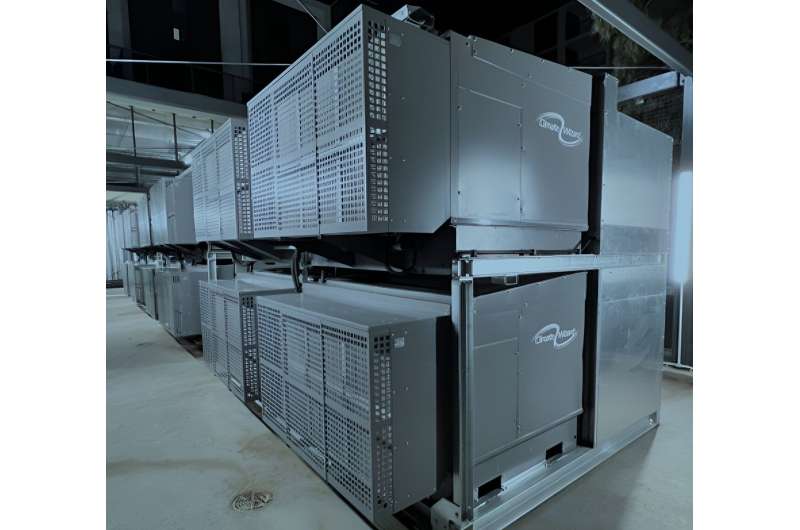
JULY 18, 2024 by University of South Australia
Collected at: https://techxplore.com/news/2024-07-energy-efficient-refrigeration-greener-future.html
University of South Australia researchers have worked with industry to build a world-first, energy-efficient refrigeration system that could revolutionize how we cool supermarkets, hospitals, abattoirs and other systems.
The indirect evaporative (dew point) carbon dioxide (DP-CO2) refrigeration system, co-developed by UniSA and Glaciem Cooling Technologies, has been installed in one of Australia’s leading supermarkets (Coles), and subsequently been tested and monitored under the RACE for 2030 CRC research program.
Preliminary results indicate that the system can reduce annual refrigeration energy consumption by 19% and reduce peak electricity demand by 37%, which will reduce greenhouse gas emissions and ongoing operational costs for the supermarket.
If these results are achieved, other supermarkets and businesses may be encouraged to adopt the new system across all their sites to slash electricity consumption and greenhouse gas emissions associated with cold chains.
Chief investigator, UniSA sustainable energy researcher Dr. Tim Lau, says heating, ventilation, air conditioning and refrigeration can account for up to 70% of customers’ electricity usage and 24% of Australia’s electricity consumption.
“The system uses dew point coolers to pre-cool the ambient air, allowing the overall system to operate efficiently, even in hot climates exceeding 40 degrees Celsius, reducing energy usage by more than a third, compared to conventional systems during summer months,” Dr. Lau says.
A computational model has been developed to assess the system’s potential across various sectors, including hospitals, meat processing plants, cold storage and aquariums. The greatest benefits are expected to be seen in hot, dry climates like central Australia.
“This project paves the way for greener and more cost-effective commercial refrigeration, not only in Australia but across the world,” Dr. Lau says.
More information: For more details about the system, go to: https://bit.ly/4bKAwyv

Leave a Reply